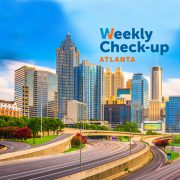Challenging the Beliefs of How We Manage our Health

In the past week two high profiled medical research stories came to international attention. Stories that are very unsettling to the many of us who are among the group of physicians who consider themselves naturalists. The first of these studies published in Lancet revealed that a daily dose of low dose aspirin may not only prevent heart disease but also prevent cancer and decrease the risk of a cancer, if already present, spreading through the blood (metastases). The second story line published in the NEJM demonstrated that bariatric surgery (obesity surgery to reduce stomach size e.g., stapling), was more effective than medical therapy (pills, diet, and exercise) in controlling diabetes type II. While many herald these results as medical breakthroughs, triumphs of modern science, man conquering disease, for others like myself they challenge core beliefs of how we should live and how we should manage our health.
I consider myself a naturalist which does not mean that I abhor science or its fruits of medicine, surgery, radiation, and technology. The breakthroughs in understanding how the human body works and how it is under constant attack by our environment and the science breakthroughs to confront that onslaught is welcome. Antibiotics dramatically increased life expectancy, vaccinations against the polio and small pox viruses prevented thousands from suffering and death, 85% of cancer in children is now curable. However, as much as 70% of disease in younger and middle aged adults is self induced by smoking, sedentary lifestyle and obesity. My belief structure is founded upon a philosophy that for the vast majority of us our natural state is one of health and it is our lifestyle choices that bring on many of the modern diseases that plague our society. The extension of that philosophy is that if poor lifestyle choices can bring on these modern diseases then re-establishing healthy living can eradicate them.
These recent medical research trends obviously challenge that naturalist philosophy. Surgery proved more effective than diet and exercise in controlling diabetes, more interesting still, blood sugars often normalized within hours of surgery suggesting a heretofore unknown mechanism for blood sugar control as calorie restriction and weight loss was previously thought to be the mechanism.
Similarly, irrespective of lifestyle, low dose daily aspirin demonstrated benefit in both vascular disease and cancer reduction — and even more interestingly — prevented cancer spread.
How to incorporate these results into the physicians tool-box, how to identify those who are best served by these interventions and those who may be harmed as no intervention is risk free is critical to optimizing the expansion of the medical arsenal against the onslaught of disease as we age. Naturalists like myself will continue to struggle with such findings and continue to expound upon the benefits of healthy lifestyle but we must not ignore the science that we also cherish. In the coming weeks we will provide more insight into these research breakthroughs that may forever change the landscape the medical care.
Be Well,
Dr. Bruce Feinberg


